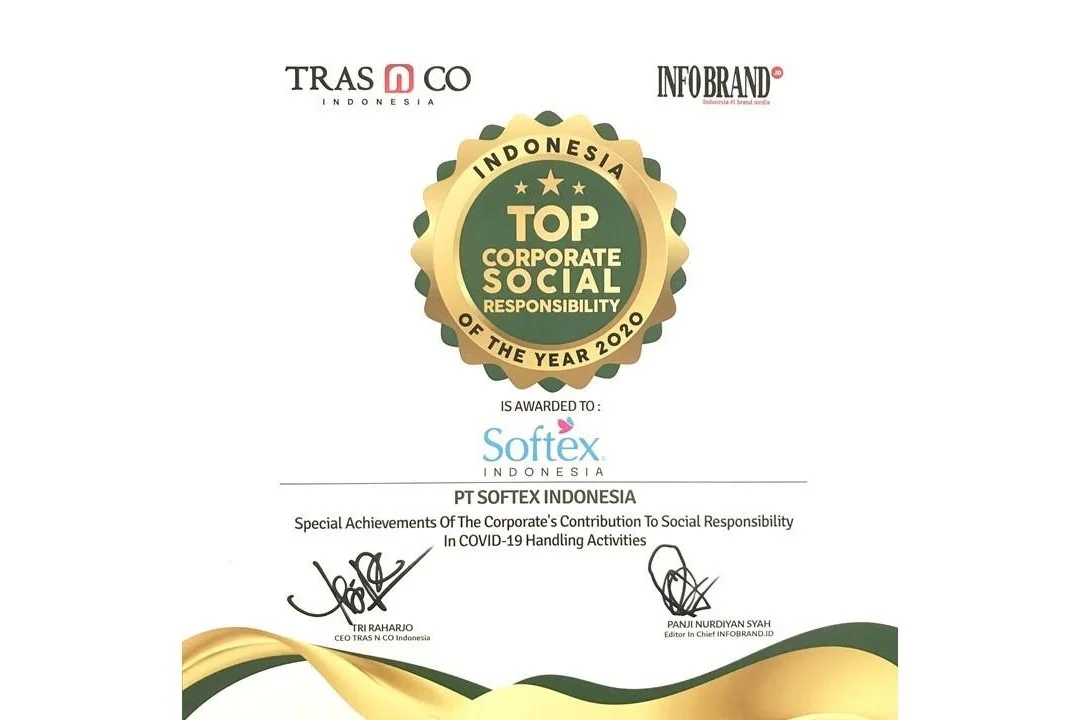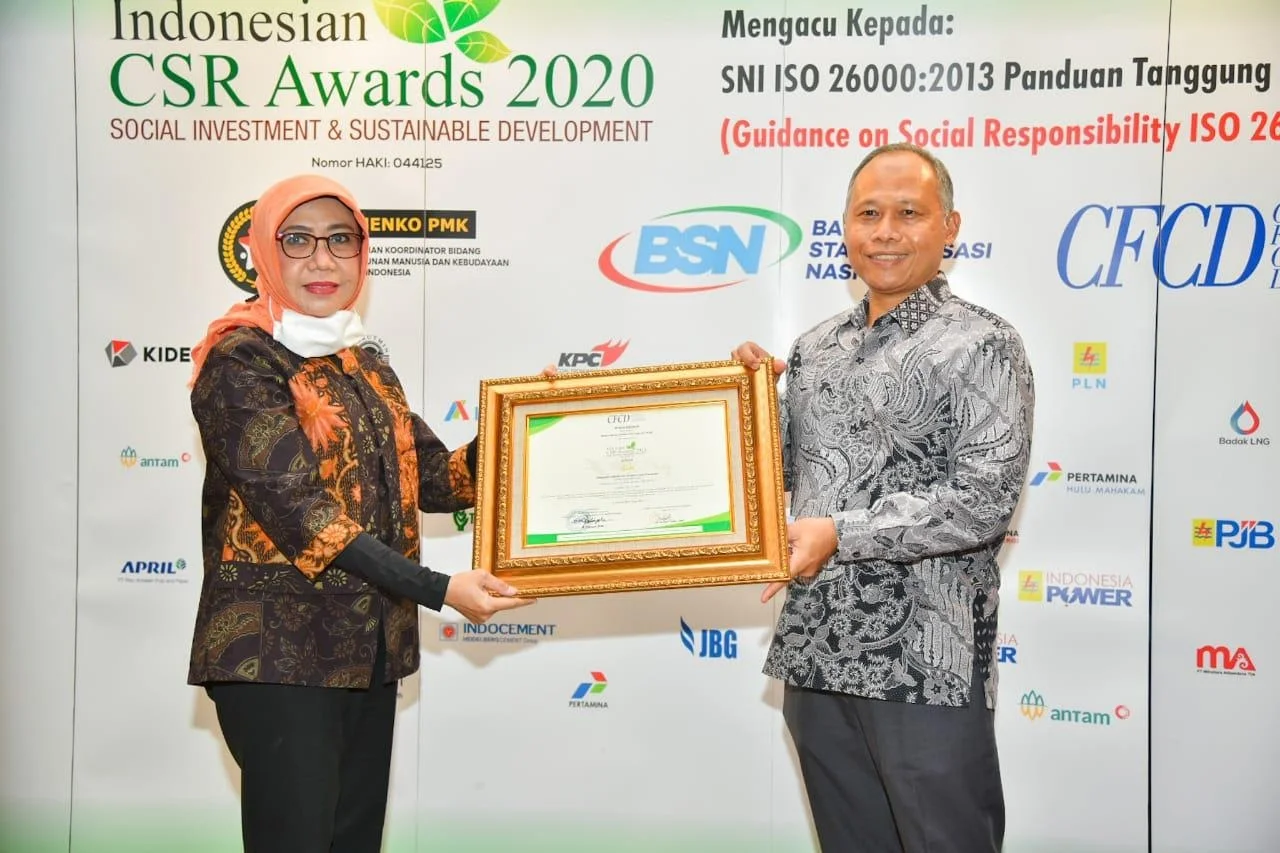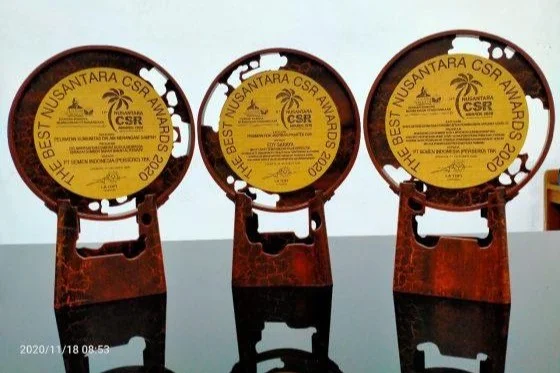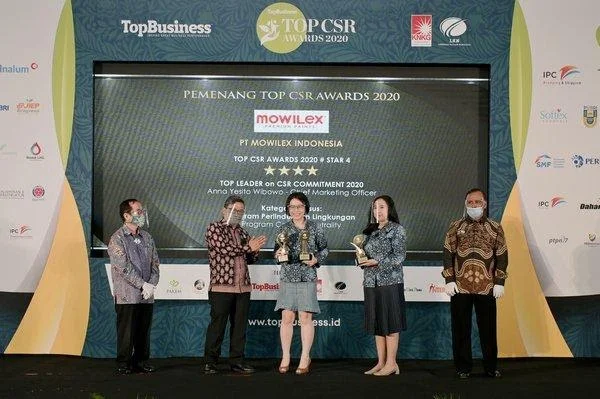Intiland: business and CSR activities can run simultaneously to achieve sustainable growth
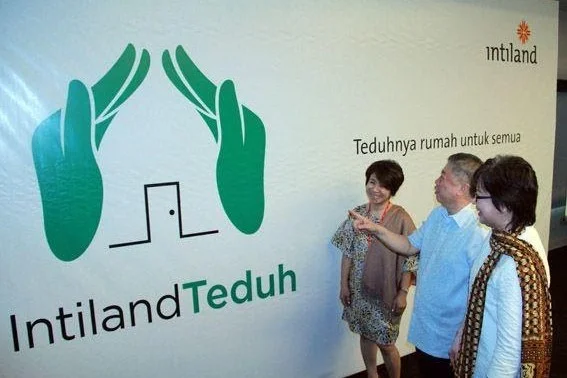
Intiland believes that business performance and Corporate Social Responsibility (CSR) activities can run simultaneously to achieve sustainable growth. In line with the vision to provide a comfortable life, Intiland continues to contribute positively to your life and the environment.
Intiland’s commitment is manifested through a program that has been prepared to achieve sustainable growth. This commitment is based on several principles:
CSR is an integral part of the Good Corporate Governance (GCG)
There is a global awareness on the importance of good CSR practices
The growth in the people’s concern for business ethics and accountability
The emerging expectation for corporates to build synergy and positive collaboration with the society to achieve mutual growth.
Legal Basis
The Company implements CSR strategy policy in order to create a conducive and sustainable business climate. The obligation to apply CSR is also regulated in Law no. 25 of 2007 on Capital Investment, Article 15 letter b which states “every investor is obliged to carry out corporate social responsibility”, and Limited Liability Company Law (UUPT) No 40 year 2007 article 74.
The Financial Services Authority (OJK) shall administer the implementation of CSR programs to public companies through Bapepam Rule Number X.K.6 concerning Submission of Annual Issuers or Public Companies Reports. These provisions and regulations serve as guidance as well as guidelines for the Company to implement a good social responsibility program.
Core Program
Intiland is fully committed to the implementation of CSR, where such commitments are not limited to the preparation of program and activity lists. The implementation of the CSR program of the Company adopts 4 (four) of 7 (seven) aspects of CSR as set forth in ISO 26000. These four aspects include environment, employment, community empowerment, and responsibility for products and consumers.
Employment
The Company is committed to ethical business practice as the employment. Some important aspects of CSR in the field of employment are set out in ISO 26000, including clear working status, labor exploitation, safety, discrimination practice, forced labor, and underage labor. This reference also regulates the level of employee welfare that includes appropriate remuneration, adequate working condition, working hours that do not reduce employees’ responsibility to their family, increased employment opportunities, career development, career promotion, employ local workers and employee welfare. These factors are regulated in the company’s regulations, policies in the field of human resource management, as well as aspects and procedures that relate to employment.
As an effort to improve the quality of human resources management, the Company implements Human Capital Information System (HCIS). This system helps the management process of employee administration, and performance management system (PMS). The Company believes that effort to improve the capability of human resources is an important factor because it positively impacts the Company’s future progress. The training program is tailored to the needs, potentials and talents, and is participated by all levels, from the lower rank to General Manager level.
Environment
The Company is very concerned about the impact of every development process on the surrounding environment, from the start of the planning process, the construction implementation, to the after sales stages of the product, such as the management of the area and the building.
Intiland always puts environmentally friendly elements at the fore of every project it develops. This has become the Company’s commitment, and can be seen from the selection and use of safe and energy-efficient materials in the Company’s projects. This commitment has been reflected from the year 1984 during the construction of Intiland Tower, when environmental issues and green building design has not been the concern of the public.
Social and community
The Company believes that the success of a company is inseparable source from the contribution of the surrounding community. For that reason, the Company always strives to be socially and environmentally responsible to contribute to the improvement of people’s quality of life.
the Company provided technical assistance and expertise to PT Triputra Agro Persada in developing Child Friendly Integrated Public (RPTRA) in Semper, North Jakarta. RPTRA was inaugurated by Jakarta Acting Governor Djarot Saiful Hidayat. This program was initiated by DKI Jakarta Provincial Government as a manifestation of providing decent and friendly urban environment for children.
The Company also helps to improve the quality of life of the people in Pacitan, East Java by building 106 simple houses on 1.7 hectares of land.
product and service responsibilities
The Company is committed to always maintaining and improving the quality of products and services for consumers. Attention to the importance of maintaining product quality is realized with the meticulousness, from the planning process to the handover of the property unit to the consumer. One example is in the selection of the building materials where the Company refers to the applicable Indonesian national and international standards. In the selection of building materials, the Company always pays attention to aspects of health and safety for consumers. In an effort to maintain the quality of product and service, the Company also provides the warranty period of 100 – 365 (one hundred to three hundred sixty five) days after the handover of the unit to consumers.
Product responsibility is also realized through the process of design planning that concerns the convenience, security and added value for consumers. The commitment has received appreciation and recognition from a number of parties, one of them in the form of awarding.
The Company’s commitment to its product responsibility is realized through the functions of customer relationship management (CRM). One of the primary functions is to improve the quality of service for customers and act as a medium of communication between customers and the Company. Customers are equipped with facilities and channels to communicate with the Company, either in the form of complaints or suggestions for improving product quality.
 Albania
Albania Algeria
Algeria Andorra
Andorra Argentina
Argentina Armenia
Armenia Australia
Australia Austria
Austria Azerbaijan
Azerbaijan Bahrain
Bahrain Belgium
Belgium Bolivia
Bolivia Brazil
Brazil Bulgaria
Bulgaria Cambodia
Cambodia Cameroon
Cameroon Canada
Canada Chad
Chad Chile
Chile China
China Colombia
Colombia Costa Rica
Costa Rica Croatia
Croatia Cyprus
Cyprus Czechia
Czechia Denmark
Denmark Ecuador
Ecuador Egypt
Egypt Finland
Finland France
France Georgia
Georgia Germany
Germany Ghana
Ghana Greece
Greece Hungary
Hungary Iceland
Iceland India
India Indonesia
Indonesia Ireland
Ireland Italy
Italy Jamaica
Jamaica Japan
Japan Jordan
Jordan Kazakhstan
Kazakhstan Kenya
Kenya Kuwait
Kuwait Latvia
Latvia Lebanon
Lebanon Libya
Libya Lithuania
Lithuania Luxembourg
Luxembourg Malaysia
Malaysia Maldives
Maldives Mali
Mali Malta
Malta Mexico
Mexico Moldova
Moldova Monaco
Monaco Morocco
Morocco Netherlands
Netherlands New Zealand
New Zealand Nigeria
Nigeria North Macedonia
North Macedonia Norway
Norway Oman
Oman